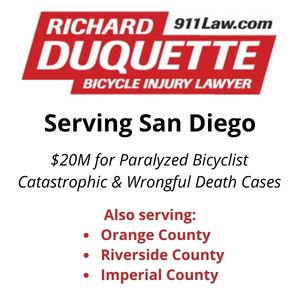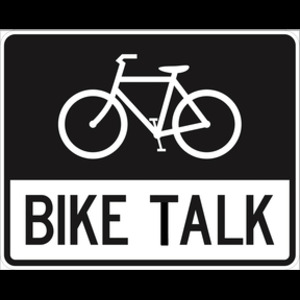
Sometimes you have to take matters into your own hands.
After Metro unveiled three auto-centric alternatives for bus rapid transit in Eagle Rock, local residents responded by creating their own Beautiful Boulevard plan.
The DIY plan is designed to accommodate all users while retaining — and improving — the bike lanes Metro planned to eliminate, and boosting the business environment in the downtown area.
It’s already won the support of County Supervisor Hilda Solis, who represents the area on the Metro Board.
Streetsblog’s Joe Linton provides a good in-depth examination of the plan, which should be a model for neighborhoods throughout the LA area.
Update: You can voice your support for this project by contacting your elected officials. Eagle Rock Forward has a sign-up form and sample email here.


Rendering of Beautiful Boulevard plan from Eagle Rock Forward. An earlier version of this story mistakenly used a rendering from a different project.
………
Over the years, we’ve repeatedly taken complaints about bike lanes blocked by trash bins to the LAPD, LADOT and various councilmembers.
But no matter how much we fight or who we talk to, nothing ever seems to change.
Technically, every damn one of these trash cans can be ticketed, just like a vehicle double parked or blocking a bike lane.
The problem, I’m told, is establishing who they belong to and who put them there, since there’s no license or registration number, and it’s possible that someone other than the homeowner could have moved them there.
Although pretty damned unlikely.
So nothing gets done about it. And the problem will just keep going on until someone gets hurt
Or worse.
………
Bike riders took over San Francisco’s iconic Market Street on Sunday.
Including one who uses his seat as foot rest.
People biking down Market Street. We LOVE to see it. pic.twitter.com/QU7zy4qIUd
— Matt Haney (@MattHaneySF) February 21, 2021
………
Don’t just read about women’s history next month.
Go ahead and color it in.
This Twitter banner + a coloring page PDF including her story will be available this week on my website. Let me know if you'd like it sent when it's ready! #KittieKnox #WomensHistoryMonth pic.twitter.com/KsXkprXDXw
— Pedal Love (@PedalLove) February 22, 2021
………
Here’s a call for bicycling researchers.
https://twitter.com/Sidsel_Hjuler/status/1362752639516172289
………
Who says bikes can’t fly?
Or how about a little fat biking in the snow?
And the expression is jump ship, not jump shit.
………
The war on cars may be a myth, but the war on bikes just keeps on going.
A British driver complains about children riding their bikes on the sidewalk, even though he’s breaking the law himself by using a handheld cellphone while driving. And speeding.
https://twitter.com/Virtual_Vincent/status/1361663020880035843?ref_src=twsrc%5Etfw%7Ctwcamp%5Etweetembed%7Ctwterm%5E1361663020880035843%7Ctwgr%5E%7Ctwcon%5Es1_&ref_url=https%3A%2F%2Froad.cc%2Fcontent%2Fnews%2Fcycling-live-blog-19-february-2021-281037
But sometimes, it’s the people on two wheels behaving badly.
A Rosemead CA man lost part of a finger when the Asian American teacher’s aide was the victim of a vicious unprovoked attack by a man on a bicycle; a crowdfunding campaign has raised nearly double the $35,000 goal.
There’s a special place in hell for the bike-riding man who nearly collided with a 76-year old woman as she jogged on a Toronto sidewalk, then turned around to knock her down from behind and kick her in the head before riding off.
A British man got six years behind bars for riding his bike up to mug a 77-year old woman, who managed to fight him off with her crutch.
………
Local
Little Women star Florence Pugh is one of us. Or would be, if her bigass 73-pound fat-tired ebike hadn’t run out of juice.
State
This is who we share the road with. After a BMW driver intentionally drove into a group of Black Lives Matter protesters blocking a San Luis Obispo highway last summer, police portrayed the driver as the victim — and sat on drone video showing the incident for six months.
A petition calls for letting a Livermore man keep fixing bikes in his garage after the city shut his business down when a neighbor complained.
Police in San Raphael used a bait bike to take down a pair of bike thieves. Something the LAPD still can’t — or won’t — do for fear of entrapment allegations, thanks to bad advice from the city attorney’s office.
National
Go ahead and ride a little more. A new study suggests the more you exercise, the better it is for your heart.
If someone visits your bike shop claiming to be from bike frame protection company invisiFRAME, it’s a scam.
Bike riding rates are up in Maui, even if bike tourism is nearly nonexistent.
Washington moves forward with a bill to eliminate state sales taxes on ebikes and accessories.
After the employees of a Colorado bike shop asked a man using a walker to leave because he refused to wear a mask, they discovered he’d shoplifted a thousand bucks worth of bike computers, speed sensors and bikewear.
A Colorado county will teach every kindergartener how to ride a bike this year. Which is exactly what should be done everywhere.
Apparently, just driving away after killing another person while driving distracted is no big deal in South Dakota — if you’re the state’s attorney general.
Schwinn is partnering with Brooklyn’s Good Company Bike Club to promote diversity in bicycling.
A pair of Philadelphia twins are pedaling their way to success, after founding the first Black-owned food delivery service exclusively serving Black-owned restaurants.
Delaware bike riders may have to start stopping for stop signs again, after a 60-month test of the Idaho Stop Law expires later this year; data from the state police shows intersection crashes involving bicyclists dropped 20% during that period.
Sad news from Georgia, where Jerry Colley, a co-founder of the Bicycle Ride Across Georgia, the Georgia BikeFest and Bike Florida died of leukemia at the age of 76.
International
Even in Yucatan, business owners say they support bike lanes, as long as the city puts them somewhere else.
A new study shows that after Toronto installed 15 miles of popup bike lanes during the pandemic, it increased access to 100,000 jobs, while boosting low stress routes to work and shopping by up to 20%. Which is yet another example of what Los Angeles has missed out on by not providing a single popup lane anywhere in the city.
Evidently, it’s not just bike racers doping. A traffic marshal at the 2019 Road Worlds in Britain got two years for dealing coke and ketamine to spectators.
A UK man explains how bike riding helped him get over the loss of his beloved dog, after riding with his dog had helped him get through the pandemic.
After a Scottish cycling champ lost his battle with pancreatic cancer, the local community got together to give him one last ride to the funeral parlor, as hundreds of townspeople lined the route.
The island of Jersey considers joining most of the European Union in adopting presumed liability, which automatically assigns fault for a collision to the operator of the less vulnerable vehicle by assuming they have a greater responsibility to avoid a crash, unless they can prove the other party was at fault. Something we desperately need here, where the blame usually falls on the most vulnerable party, rather than the least.
The president of Zambia responds to a request for bicycles from village leaders with a gift of hundreds of bikes bearing his picture — and warns he’ll take them right back if they’re used to support the opposition.
If a Samoan startup has its way, you’ll be riding on foam instead of air, and flats will be a bad memory.
Somehow, a pair of Singapore bike riders got the blame when a pack of feral dogs knocked them off their bikes, with one rider injured falling into a drain.
A Philippine city paints a picture of equality for women on bikes by making a few feminine adjustments to the standard bike lane symbol.
Competitive Cycling
Don’t hold your breath. Belgian cycling prodigy Remco Evenepoel is asking for an apology from UCI president David Lappartient, after an investigation cleared him of accusations his team director tried to hide something when Evenepoel crashed over a bridge during last summer’s Il Lombardia.
After suffering years of criticism for his earlier defense of Lance Armstrong, cycling announcer Phil Liggett now says he’s glad officials got him on doping charges.
A pair of cyclists get into it following a crash in London Olympic road race. The 1948 London Olympics.
Absolutely incredible (colour) footage from the 1948 Olympic road race in London https://t.co/M4YD378bXO
— Richard Moore (@richardmoore73) February 18, 2021
Finally…
That time an Aussie football team tried bicycling for training, and discovered why forming a peloton might be a problem. Nothing like having your bicycling spill off a sidewalk captured for posterity on Google’s street view.
And a look at bikes of the past, from the past.
https://twitter.com/BBCArchive/status/1363422711511273478
Thanks to Megan Lynch for the link.
………
Be safe, and stay healthy. And wear a damn mask, already.











